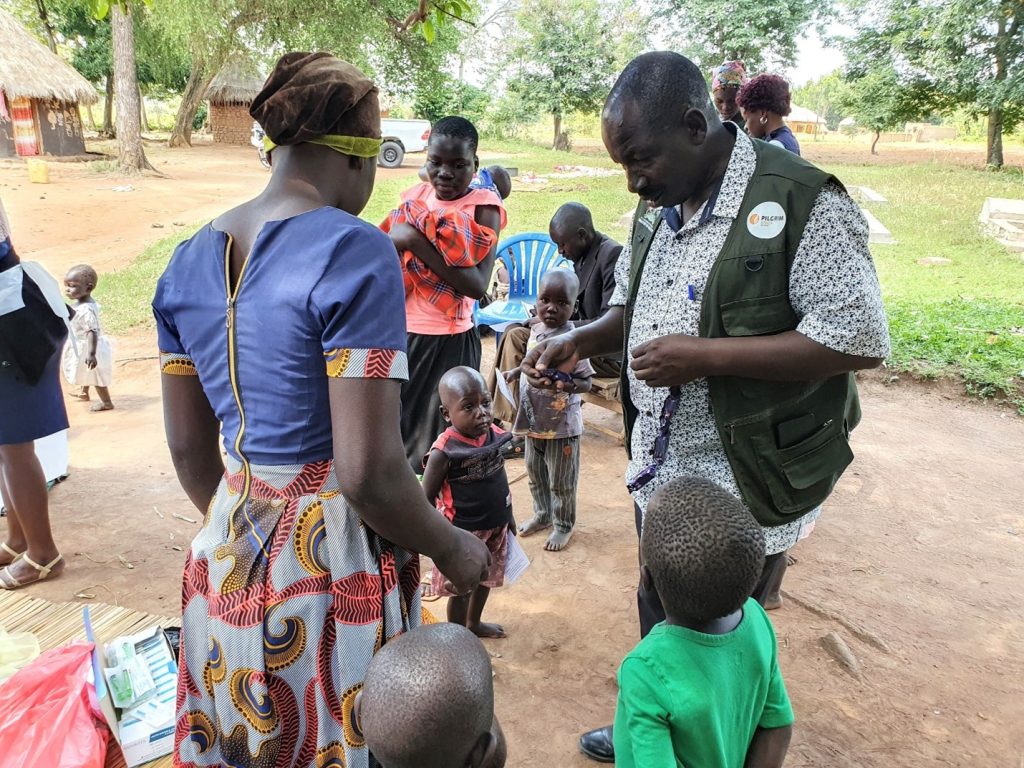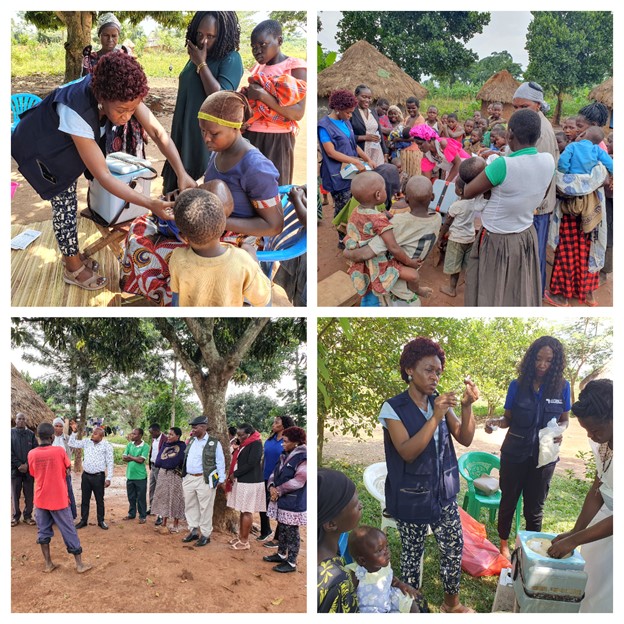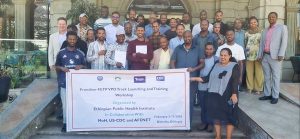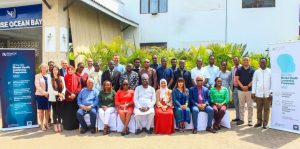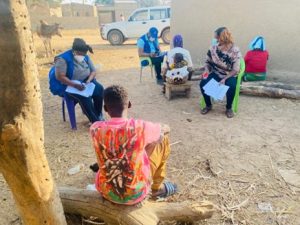What worked for us in measles vaccination campaign: Kibuku District- Uganda
-
by
AFENET
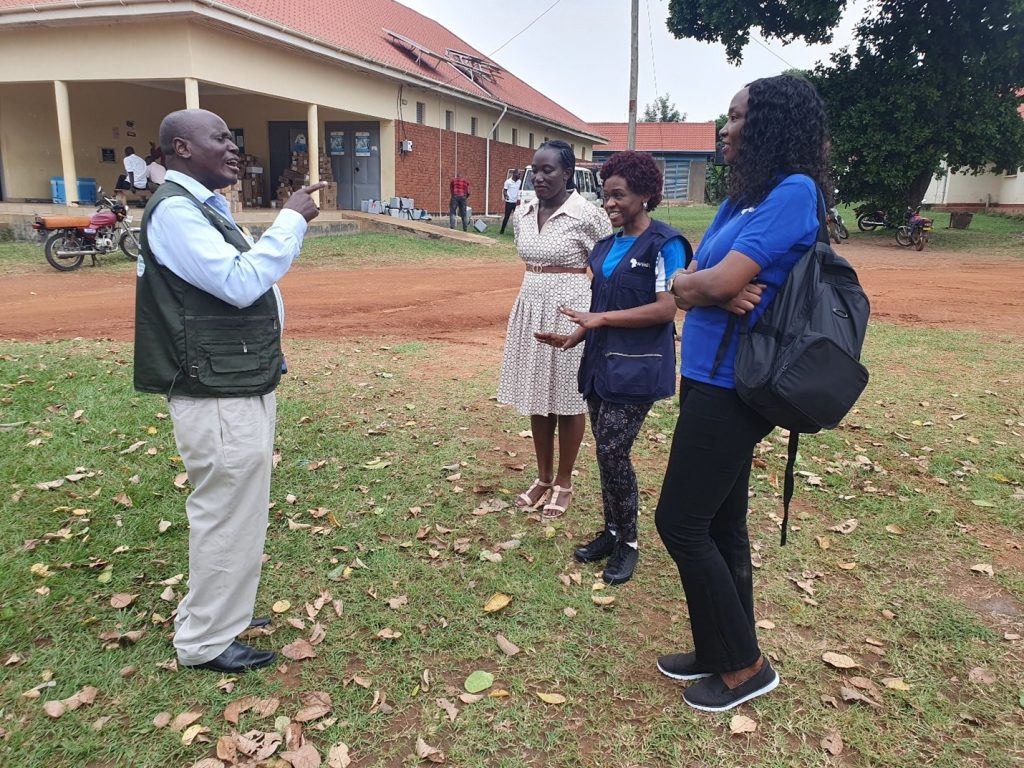
When in mid-July Kibuku became the 23rd district in Uganda to confirm a measles outbreak since January 2024, just like elsewhere, a response was inevitable to halt the viral disease.
With support from the US Centers for Disease Control and Prevention (CDC) under the Life course Immunization Project, the African Field Epidemiology Network (AFENET) teamed up with the Ministry of Health to support Kibuku and other partners to respond to the outbreak.
To enhance measles surveillance through active search and vaccinate at least 95% of children aged 9-59 months with measles-rubella vaccine were the main objectives of the Kibuku response. The target was to vaccinate 26,724 children across the 12 sub counties that make up the district.
And within the first week of the vaccination campaign, all but two sub counties reported over 100 percent coverage. By July 29, 2024, a total of 29,004 children including 400 zero dose ones had been immunized. These figures will see an upward trend once all the tallying is complete.
So, how did Kibuku do it? Three major factors emerged at the end of the campaign during an exit meeting of partners involved in the response.
Home Clustering
According to Dr Godfrey Buyinza, the Kibuku district health officer, a change in tack from waiting for children at static outreach posts at parish level to finding them in their villages was among the drivers of success.
“We realized that if were to continue by staging outreach posts at the parish, it was not going to give us any results. The children cannot walk long distances from their homes to look for vaccines. So, we, in consultation with the ministry of health adopted the clustering of a minimum of ten homes and vaccinated children close to their homes,” said Dr Buyinza, further intimating that the move also enabled vaccinators reach over 400 zero dose children.
Resident District Commissioners
Involving the office of the resident district commissioner (RDC) was yet another contributing factor to Kibuku’s success. Both the RDC Mr. Samuel Musiho and his deputy, Mr. Dauda Kato exhibited support to the response and were involved in monitoring of the immunization and mobilization activities.
“They have been in the field with us. Even the resistant groups to government programs that we usually have in the district when they discovered that the office of the RDC was fully on board, they succumbed,” Assistant DHO Anthony Olupot noted.
Kanyiriri, known for partially quoting bible verses without looking at the context, is the biggest threat to vaccination. Sect members usually hide their children during vaccination campaigns and are apprehensive to health services. However, with the support of the RDCs, 54 children who had been hidden were eventually immunized.
Community Health Workers
Officially known as Village Health Teams (VHTs), these frontliners were acknowledged as pointed out as having played a critical role in mobilizing homesteads into clusters to facilitate the vaccination campaign in their respective villages.
DHO Dr Buyinza said: “They did this at short notice amidst meagre resources. You can imagine what they can do if well facilitated.”
Ms. Drucilla Ssekandi, an epidemiologist with the Health ministry echoed Dr Buyinza calling for support the VHT structures so that what has been achieved is sustained. “Remember we had an outbreak because we had a gap in our coverage. We need to maintain this success. So, I add my voice to the DHOs to call for more support to our VHTs to be able to promptly report gaps in their communities.
Dr Rose Nampeera [Medical Epidemiologist], who led the AFENET team, commended the synergy involving the District Health Team, RDC’s office and partners which yielded into results. “Everyone was committed. And this shows in the results that we have. We are honored to have been part of this response. We are grateful for the opportunity to serve, and we pray for more collaborations in future to make Kibuku better.”
